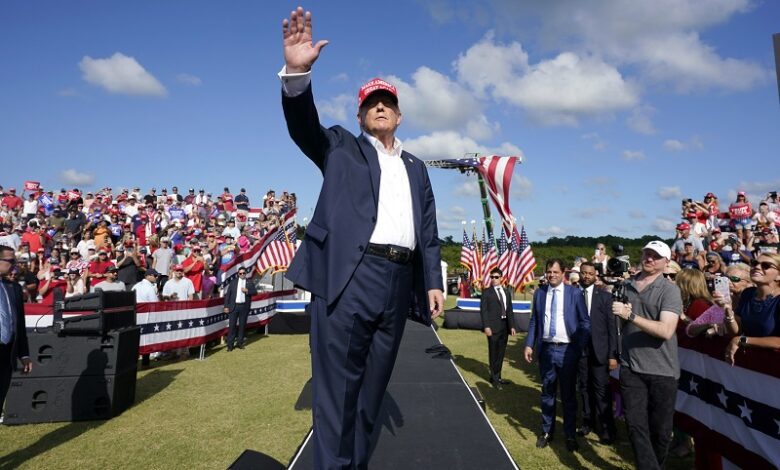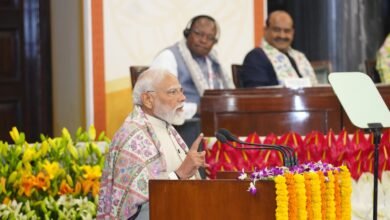Trump Defends Withdrawal from Paris Climate Accord, Labels it a “Rip-Off”

News Mania Desk/ Agnibeena Ghosh/29th June 2024
Former US President Donald Trump has reiterated his defense of the 2017 decision to withdraw from the Paris Climate Accord, calling it a “rip-off” that would have cost the United States $1 trillion. Trump, the likely Republican candidate for the 2024 presidential election, made these claims during the first presidential debate against his Democratic rival, President Joe Biden. The debate covered a range of issues including the economy, border security, foreign policy, abortion, national security, and climate change.
In the 90-minute debate, marked by intense personal attacks, Trump asserted that the Paris Climate Accord was financially detrimental to the United States, claiming that it imposed significant costs on the US while allowing countries like China, India, and Russia to evade financial responsibility. Trump, 78, argued that the accord unfairly targeted the US, which he claimed was the only country required to pay, describing the agreement as a financial burden on American workers.
In 2017, Trump withdrew the US from the 2015 Paris Agreement, which aimed to limit global temperature rise to below 2 degrees Celsius. The accord included commitments from developed nations, including the US, to collectively contribute $100 billion annually by 2020 to assist poorer, developing countries in adapting to the impacts of climate change, such as rising sea levels and increasing heat.
However, contrary to Trump’s claims, the financial commitment by developed nations fell short of the $1 trillion figure he suggested. According to a CNN report, developed countries achieved their collective goal of $100 billion per year two years late in 2022, but the amount has never approached the $1 trillion mark. Furthermore, the US contributed nothing to the global finance goal after Trump’s withdrawal from the agreement.
President Biden has pledged $11.4 billion annually from the US to support international climate finance, but this funding level has yet to be fully realized. Trump, known for his skepticism towards climate change, has frequently argued that countries like China and India benefit disproportionately from the Paris Agreement. It is notable that China is the world’s largest carbon emitter, followed by the US, India, and the European Union.
Trump’s stance on the Paris Accord aligns with his broader approach to climate policy, which has often prioritized economic concerns over environmental commitments. His assertion that the accord is a financial “rip-off” reflects his administration’s view that international climate agreements should not compromise American economic interests.
The debate highlighted the stark contrast between Trump and Biden’s approaches to climate change. While Trump focuses on the economic costs and perceived inequities of international agreements, Biden emphasizes the importance of global cooperation in addressing climate change and has sought to reestablish the US as a leader in international climate efforts.
As the 2024 presidential race intensifies, climate policy is expected to remain a significant point of contention between the candidates. Trump’s continued criticism of the Paris Climate Accord underscores his administration’s legacy and sets the stage for ongoing debates about the role of the US in global climate initiatives.






